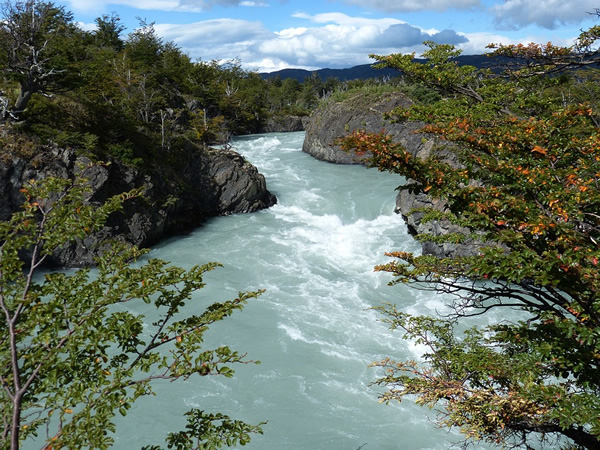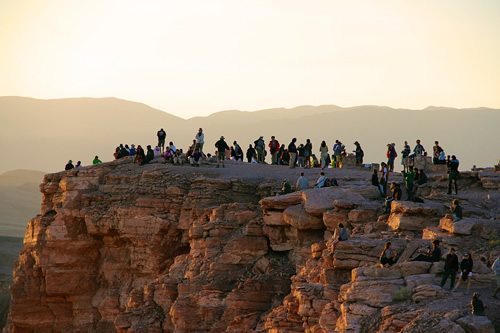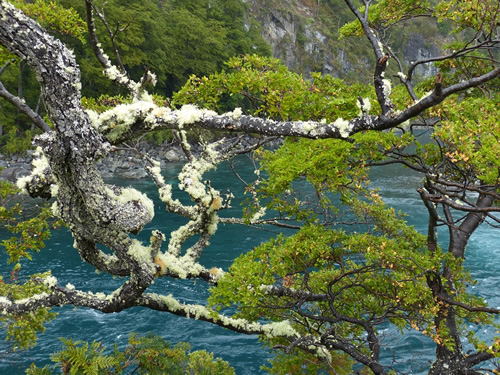How to Learn Spanish and Kayak in Chile
By Ann Beman
 |
| A river in Patagonia, Chile. |
I would not claim that I am generally a multitasker. Sure, I can perform two tasks at the same time, but I prefer to focus on one or the other. Patting the head, let’s say, or rubbing the stomach.
Nevertheless, I need a few simultaneous tummy rubs to reach some of my head-patting goals. Take, for example, whitewater kayaking and Spanish-speaking.
Whitewater kayaking captured me — mind, body, and soul — a dozen years ago, and even hornswoggled me into the ranks of certified whitewater instructors. In all that time, with all that experience, you’d think
I would have the basics down by now. But the lazy truth is, when I got good enough at some skills, others didn’t seem necessary, or as necessary, anymore.
When I first started paddling in whitewater, I wobbled and flipped the boat over in most every ripple and rapid. My Eskimo roll, the ability to upright myself from the submerged position, kept me afloat, and I practiced
the valuable skill often. But as I improved, I neglected this much-needed skill. In return, it eluded me.
While studying in Spain during college, I had no choice but to use castellano. It captivated me much like kayaking has. Since then, however, spoken Spanish has drifted from me, if not completely drowned.
 |
| In Chile, there are many opportunities to speak and learn Spanish, often in spectacular locations! |
The solution to both problems seemed to be in one place: Chile. I began by contacting friends who had paddled in the long, thin South American country, where so many glacier-fed, westering waterways cascade from Andean peaks
that kayakers could boat a different section of river almost every day of the year. Most whitewater outfitters in Chile operate on Patagonian rivers, in the southern part of the country, but I opted for central Chile, where just one company plies
the waters. Chilean Adventures specializes in whitewater kayak trips, but its co-owners — American Todd Ericson and Chilean Eduardo Doerr — are proponents of experiential education. They also run annual high school, university,
and gap-year programs, and adult Spanish courses as well.
 |
So I began my 2-month tour of Chile solo, but quickly connected with the Chilean Adventures crew, who by day engaged my kayaking skills. By night (and mid-afternoon siesta hours) they engaged me with the chatty, non-English-speaking
proprietors of Los Castaños, a comfortable guesthouse on the Rio Teno in sleepy Los Queñes.
Toward the end of my own Chilean adventure, I found myself sharing a taxi and translating the cab driver’s Chilean dialect for a couple visiting from Spain. Not only had I regained my castellano, but I had gained an
intermediate understanding of Chilean Spanish. Best of all, when I finally returned home, not only could I upright my kayak again, but I could rrrroll my Spanish r’s while doing it.
Ann Beman lives in Kernville, CA.
|
